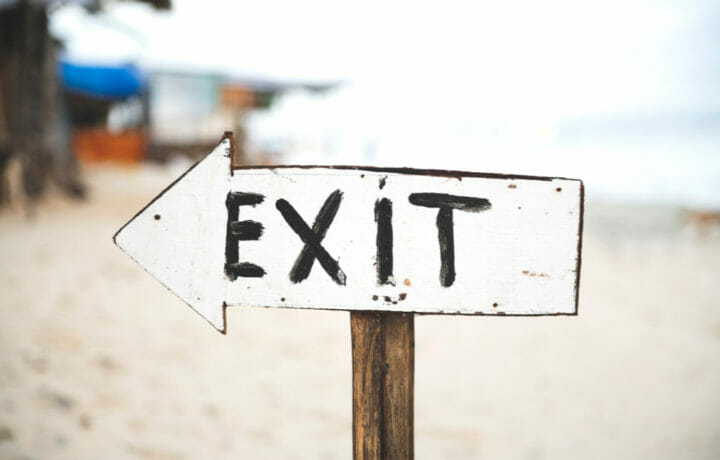Russian Federation President Vladimir Putin once suggested that the dissolution of the Soviet Union was the greatest catastrophe of the 20th century. That hyperbole should be considered carefully, as the Russian leader apparently felt the end of the “Evil Empire” was somehow worse than the Holocaust, World War II or mass starvation that occurred within the Soviet Union.
Even before launching Russia’s unprovoked invasion of Ukraine, Putin has attempted to rebuild the Soviet empire – and now it appears in some ways he’s succeeded. There are once again lines in Moscow, and increasingly there is an absence of western business.
Fast food giant McDonald’s announced that it would close its 850 restaurants, which it spent decades building. The move came 32 years after the first McDonald’s location opened in Moscow in early 1990. Coca-Cola, Pepsi, Starbucks, and the parent companies that own KFC and Pizza Hut have also announced that operations in Russia would be suspended. Brands from Apple to Disney to Ikea have all closed up shop, while JPMorgan Chase and Goldman Sachs have ceased operations in Russia.
Deloitte joined PwC and KPMG in being the latest audit firms to announce its exit from Russia, and its puppet state Belarus.
“We will separate our practice in Russia and Belarus from the global network of member firms. Deloitte will no longer operate in Russia and Belarus,” Deloitte’s global CEO Punit Renjen said in a March 7 statement.
Fellow audit firm Grant Thornton also announced that it had ended links with FBK, its member firm in Russia, on March 1.
The Iron Curtain Falls
A new iron curtain has fallen, but this time it is the west that seeks to cut off – even ostracize – Russia to punish Putin and his regime.
Economist Mary Lovely, a senior fellow at the Peterson Institute for International Economics in Washington, told CBS News that Russia has essentially become a commercial pariah.
“Pretty much no company, no multinational, wants to be caught on the wrong side of U.S. and Western sanctions,” she explained.
This month, aerospace firms Boeing and Airbus stopped supplying parts and service support for Russian carriers, while Boeing announced it would stop buying titanium from Russia.
Energy Deals Nixed
On Tuesday, the Biden Administration also announced that the United States would no longer import Russian Oil. The news came after BP, Russia’s largest foreign investor, announced it would abandon its nearly 20% stake in Russian state-owned oil and gas company Rosneft; while Equinor, Norway’s largest energy company, also began to withdraw from joint ventures in Russia.
ExxonMobil is pulling out of a key oil and gas project, Sakhalin-1, and announced that it would halt all new investment in Russia. Shell also said it would leave a joint venture with state-owned Gazprom and end its involvement in the now-suspended Nord Stream 2 pipeline that was built to carry natural gas to Western Europe.
In reaction, Kremlin spokesman Dmitry Peskov stated, “The United States definitely has declared economic war against Russia and is waging this war.”
Russia Also Banned
It isn’t just the companies that have pulled out of Russia. The national carrier Aeroflot has been banned from the airspace of the entire EU, the United Kingdom, and Canada. The airline has announced it would suspend all foreign flights, except to Belarus, beginning on March 8.
Russia has also been barred from international competitions and cultural events. That has included the FIFA World Cup, a move that will keep the Russian men’s team from participating in the qualifying playoffs scheduled to begin at the end of the month. Unless the suspension is lifted, Russia would be unable to qualify for competition at the World Cup.
The International Paralympic Committee went even further and announced that athletes from Russia and Belarus were to be expelled from the games, and would not be allowed to compete.
The Fédération Internationale Féline (International Cat Federation) has also banned Russian cats from its international competitions. The rule will remain in place until May when it will be reviewed.
Musicians, festival organizers and industry leaders from the world of entertainment have announced their decisions to postpone events in Russia, which could limit entertainment offerings in the country.
Several bands, including Green Day and Imagine Dragons, have already pulled the plug from performing and canceled tours in Russia, as did rock legend Eric Clapton who announced that shows in St. Petersburg and Moscow were canceled and won’t be rescheduled.
The Cannes Film Festival announced that no Russian delegation would be welcome this year, while the Venice Film Festival was organizing free screenings of the Ukrainian film Reflection, which is about the conflict in Ukraine’s Donbas region.
Several movie studios have pressed pause and announced that they would halt distribution of films to Russia. These include such high profile releases as The Batman from Warner Bros. and Paramount’s The Lost City.
Russian Ties
Now would certainly be a bad time to have any ties to Russia. Ties, such as spouse from Russia or connections to a business in Moscow, have never been ideal when seeking security clearance, but could complicate matters now.
“It is too early to really know,” attorney Mark Zaid, who specializes in matters related to security clearance told ClearanceJobs, adding, “It would not be unreasonable to believe the situation is worse for anyone who has ties to Russia.”




